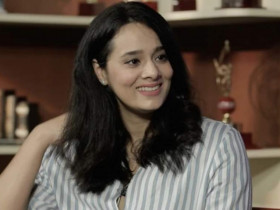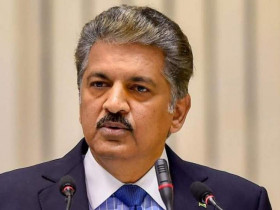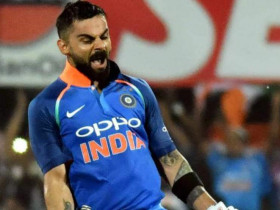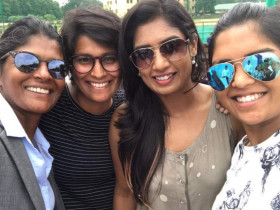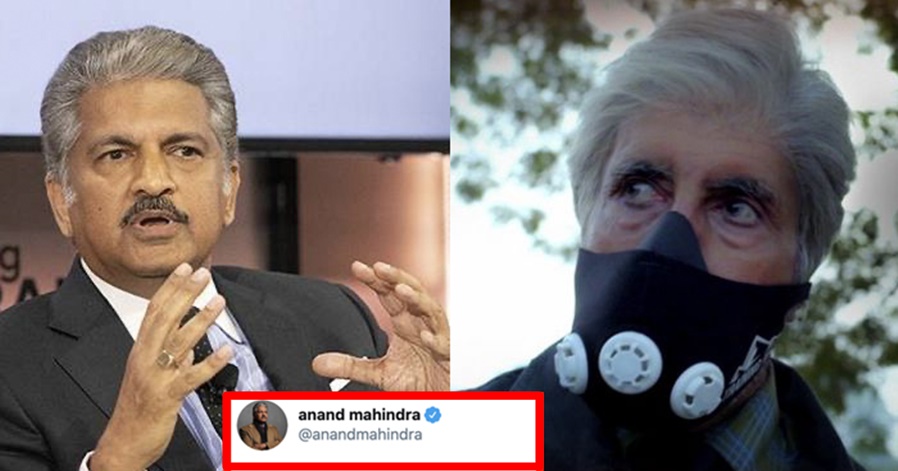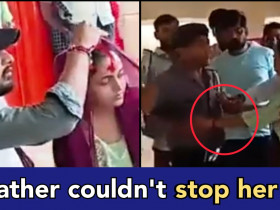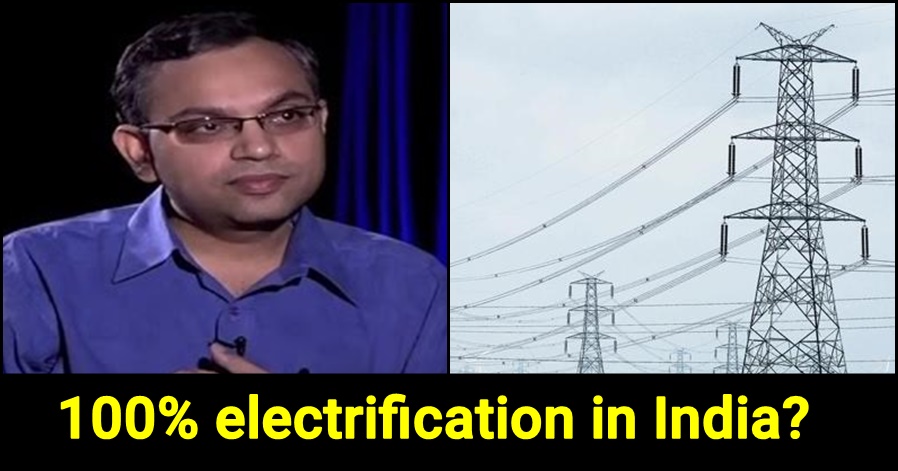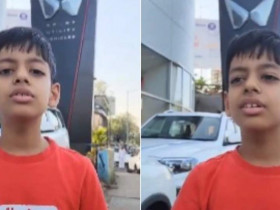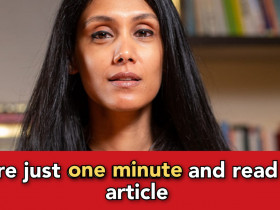Fear was instilled among the citizens of Pakistan by the Taliban. People were unable to concentrate on their work properly and girls, in particular, were scared to even step out of their homes as they couldn’t get access to education because the Taliban banned girls from attending schools. To make things even worse, the notorious group even attacked the girls’ schools and put the area under their control.
Many thought that girls’ future was no longer good and even their parents couldn’t think of taking a step forward as they were concerned about safety. To instil bravery and drive out fear from the danger zone, Malala Yousafzai the voice of Pakistan announced her arrival in style with a bold speech. It was when things started to change in the country.
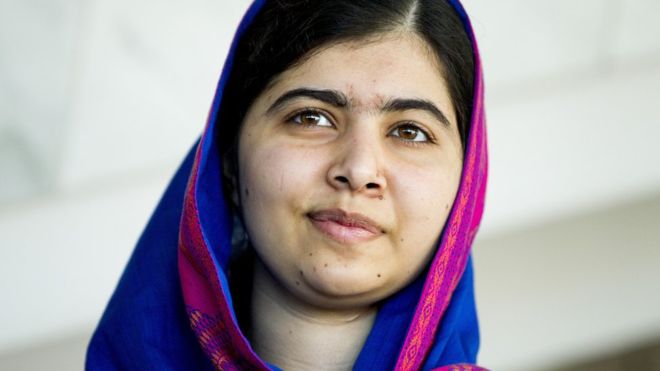
Today, she became the country’s activist for female education. She is also known for human rights advocacy, particularly the education of women and children in her native Swat Valley in Khyber Pakhtunkhwa, northwest Pakistan, where the local Taliban had at times prevented girls from attending school.
Her advocacy turned out to be an international movement, and according to former Pakistani Prime Minister Shahid Khaqan Abbasi, Malala Yousafzai has become “the most prominent citizen” of the country.
She has received several peace awards and was awarded the Nobel Peace Prize in 2014 along with Kailash Satyarthi, an Indian children’s rights activist.
Now let’s learn about her early life:
Yousafzai was born on July 12, 1997 to parents Toor Pekai Yousafzai (mother), Ziauddin Yousafzai (father) in Mingora, Pakistan, situated in the country’s Swat Valley.
For the initial years of her life, Yousafzai’s hometown was a famous popular tourist spot that was well-known for its summer festivals. But, all of a sudden, the area started to change as the Taliban tried to put the area in their control.
Yousafzai had attended a school that her father, educator Ziauddin Yousafzai, had established. After the Taliban started attacking girls’ schools in Swat, Yousafzai gave a bold speech in Peshawar, Pakistan, in September 2008. Her speech’s caption read: “How dare the Taliban take away my basic right to education?”
In early 2009, when she was only 11 years old, Yousafzai started blogging for the BBC about living under the Taliban’s dangerous threats to deny her an education. In order to conceal her true identity, she used the name Gul Makai. However, she was disclosed to be the BBC blogger in December of the same year.
With a massive public platform, Yousafzai began to speak out about her right, and the right of all women, to get basic access to education in Pakistan. Her aim was to campaign and bring about a social change and finally, her activism resulted in a nomination for the International Children’s Peace Prize in the year 2011. In the same year itself, she was awarded Pakistan’s National Youth Peace Prize.
When life was going smoothly for Yousafzai and her family, they learned that the Taliban had issued a ‘death threat’ against her because of her activism. Though Yousafzai feared for the safety of her father, an anti-Taliban activist — she and her family felt that the group would not harm a child.
Yousafzai was shot by the Taliban
On October 9, 2012, when Yousafzai was 15 years old, she met with an unexpected situation. She was riding a bus with friends on their way home from school and suddenly, a masked gunman boarded the bus and threatened the girls to know who actually was Yousafzai.
Soon after her friends looked toward Yousafzai, her location was a direct hint and after finding it, the gunman fired the target, hitting Malala in the left side of her head but the bullet then went down her neck after which two other girls were also injured in the attack.
The shooting left Yousafzai in a very serious condition, so she was taken to a military hospital in Peshawar. A portion of her injured skull was removed to treat her swelling brain. To receive good care of her life and health, she was transferred to Birmingham, England.
Once she was in the UK Yousafzai was finally taken out of a medically induced coma. Though she would require multiple surgeries- repair of a facial nerve to sort out the paralyzed left side of her face, she didn’t suffer any major brain damage. In March 2013, she started attending school in Birmingham.
The shooting resulted in a staggering support for Yousafzai, which continued even during her recovery. But, the Taliban still sees Yousafzai a target, although Yousafzai remains a loyal advocate for the power of education for girls and women in her country.
Malala Yousafzai’s Speech at the U.N. was the turning point in her life:
9 months after being shot by the Taliban, Yousafzai delivered a superb speech at the United Nations on her 16th birthday in 2013. Yousafzai drew special attention to education and women’s rights, urging global leaders to change their policies.
In the aftermath of the attack, Yousafzai said that “the terrorists thought that they would change our aims and stop our ambitions, but nothing changed in my life except this: weakness, fear and hopelessness died. Strength, power and courage were born.”
Yousafzai also demanded action against illiteracy, poverty and terrorism: “The extremists were, and they are, afraid of books and pens. The power of education frightens them. They are afraid of women… Let us pick up our books and pens. They are our most powerful weapons.”
Malala Day
After Yousafzai’s 2013 speech at the United Nations, Secretary-General Ban Ki-moon had pronounced July 12th- Yousafzai’s birthday i.e. ‘Malala Day’ in honour of the young leader’s activism to make sure that education is for all children.
At the announcement, Ban Ki-moon said: “Malala chose to mark her 16th birthday with the world. No child should have to die for going to school. Nowhere should teachers fear to teach or children fear to learn. Together, we can change the picture.”
It was on March 29, 2018, Yousafzai had returned to Pakistan for the first time since her deadly 2012 attack. Not long after her arrival, she met with the then Prime Minister Shahid Khaqan Abbasi and gave an emotional speech at his office.
“In the last five years, I have always dreamed of coming back to my country,” she said, adding, “I never wanted to leave.”
During her productive four-day trip, Yousafzai was scheduled to visit the Swat Valley, including the site where she nearly saw her death at the hands of the Taliban. Moreover, she was to inaugurate a school for girls being built with assistance from the Malala Fund.
In 2018, she once again gave a powerful speech. “Now I am studying Philosophy, Politics and Economics at the University of Oxford.
And every day I fight to ensure all girls receive 12 years of free, safe, quality education.
I travel to many countries to meet girls fighting poverty, wars, child marriage and gender discrimination to go to school. Malala Fund is working so that their stories, like mine, can be heard around the world.
We invest in developing country educators and activists, like my father, through Malala Fund’s Gulmakai Network. And we hold leaders accountable for their promises to girls.
With more than 130 million girls out of school today, there is more work to be done. I hope you will join my fight for education and equality. Together, we can create a world where all girls can learn and lead,” she added.
Malala Yousafzai’s Awards
In October 2013, the European Parliament felicitated Yousafzai the Sakharov Prize for Freedom of Thought in acknowledgement of her excellence at work. In October 2014, Yousafzai became the youngest-ever person to receive the Nobel Peace Prize, at just 17 years old. She had received the award along with Indian children’s rights activist Kailash Satyarthi.
Actually, Yousafzai was first nominated for the Nobel in the year 2013 but did not win. She was then renominated in March 2014. In congratulating Yousafzai, former Pakistani Prime Minister Nawaz Sharif said: “She is (the) pride of Pakistan, she has made her countrymen proud. Her achievement is unparalleled and unequaled. Girls and boys of the world should take lead from her struggle and commitment.”
Former U.N. Secretary-General Ban Ki-moon showered praise on Yousafzai as “a brave and gentle advocate of peace who, through the simple act of going to school, became a global teacher.”
In April 2017, United Nations Secretary-General Antonio Guterres had roped in Yousafzai as a U.N. Messenger of Peace to promote girls’ education. It should be noted that the appointment is the highest honour given by the United Nations for a starting period of two years.
Yousafzai was also given honorary Canadian citizenship in April 2017. She is also the sixth person and the youngest in Pakistan’s history to receive the honour proudly.

